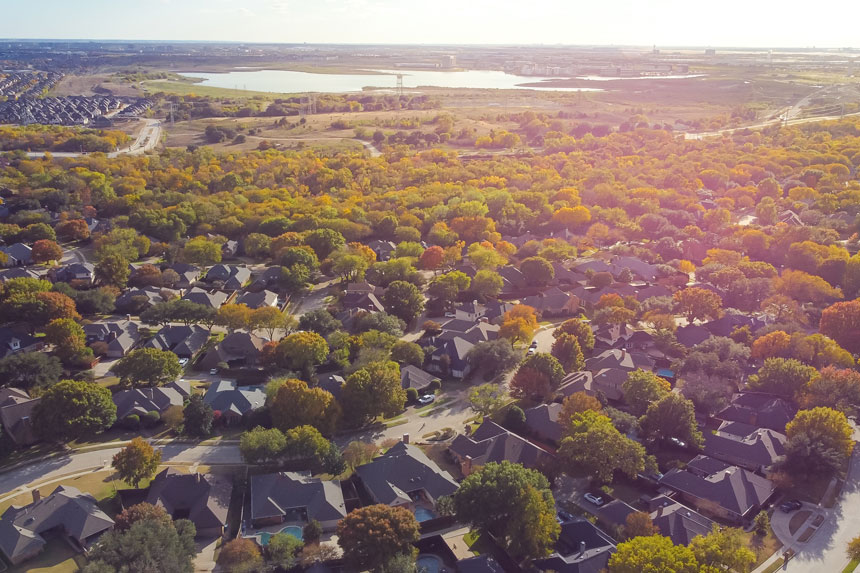JBrice LLC purchased two townhomes in the Wilcrest Walk neighborhood in Houston, Texas, as investment properties and posted each home on Airbnb for short-term rental. It didn’t take long for neighbors to complain about the noise from parties, multiple cars using up parking spaces, and strangers coming in and out of the neighborhood at all hours of the day and night.
The neighborhood homeowners’ association (HOA), Wilcrest Walk Townhomes Association (WWTA), took action and sent letters requesting JBrice cease and desist renting the properties “for short term hotel, vacation rental, and/or transient use,” as it was in violation of the WWTA’s single-family residential use provision that prohibits use of the property for “any business, commercial, trade or professional purposes.”
Subsequently, WWTA adopted Amended and Restated Rules and Regulations to specifically prohibit using a townhome for hotel or transient use, citing independent authority (beyond the WWTA deed restrictions) to restrict short-term rentals under a section of the Texas Property Code.
JBrice neither ceased nor desisted; instead, the company sued WWTA, asking the court to declare that WWTA had no right to limit the duration of rentals to tenants. JBrice explained that it had followed all WWTA covenants pertaining to townhouse rentals, which state “[A]ll leases of any townhouse units must: be in writing and … subject in all respects to provisions of the Declaration, Articles of Incorporation and By-laws of the Association.” Other than those two restrictions, the covenant states, “there shall be no restriction on the right of any townhouse owner to lease his unit.”
Additionally, JBrice countered that its leasing business does not occupy the premises; its tenants do, and tenants are included as a permitted use for the townhomes. Furthermore, JBrice noted that short-term rental is a true lease because a short-term renter contracts for the right of exclusive possession of a property.
WWTA disagreed and countersued, asking the court to enjoin JBrice from short-term rental of his properties because the company had converted the homes into unregulated mini-hotels, in violation of WWTA’s Residential-Use covenant restriction which prohibits property use “for any purpose other than as a private single-family residence for the Owner, his family, guests, and tenants.”
WWTA argued that short-term tenants are not residents or tenants but transient occupants — a term used for hotel guests. The association pointed out that JBrice’s short-term rentals were advertised to the general public as a hotel alternative and were subject to occupancy tax just like a hotel. They also noted that JBrice sent cleaning crews to the properties after the occupants departed and paid state and local short-term rental occupancy taxes, such as the Texas Hotel Tax.
Additionally, WWTA claimed the short-term rentals were being used for parties and other activities that caused violations of WWTA’s nuisance and annoyance provisions.
How Would You Rule?
The trial court ruled that the short-term rentals breached the residential-use provision of the neighborhood’s deed restrictions and enjoined JBrice from renting its townhomes for terms of fewer than seven days. The court of appeals affirmed on a different basis, holding that WWTA, as an HOA, possessed independent authority to restrict short-term rentals under the Texas Property Code.
The Supreme Court of Texas, however, overruled the lower courts. The judge emphasized that “No restriction” means no restrictions on JBrice’s right to rent out the townhomes for any duration and ruled that neither the deed covenants nor the Property Code authorized the HOA to impose a short-term rental restriction. The covenants explicitly forbid restraints on an owner’s right to lease unless the restriction is contained within the neighborhood’s governing documents. The governing documents, in turn, contain no covenant that restricts the duration of an otherwise permissible lease.
—JBrice Holdings v. Wilcrest Walk Townhomes Association, 2022
This article is featured in the July/August 2023 issue of The Saturday Evening Post. Subscribe to the magazine for more art, inspiring stories, fiction, humor, and features from our archives.
Become a Saturday Evening Post member and enjoy unlimited access. Subscribe now




Comments
I am so glad I live in a rural area away from nosy homeowners associations who act as neighbourhood nazis. If a self-appointed goon squad such as HOAs are ever approached my about any of my privately owned properties, they would be met with a well-armed response followed by with “kiss my ass and go to hell.” They don’t pay my property insurance or property taxes. They can stay away from me and hit the road running. Sons of Bitches!
The first paragraph says it all as to why I agree with both the trial court and court of appeals decision to rule on behalf of the WWTA/HOA here. JBrice is a greedy, sleazy outfit that only cared about whatever profit they could get from the 2 townhouses as Airbnb’s with no regard to the many residents of this townhouse complex otherwise.
Had this been known upfront, WWTA never should have sold it to said party. Though not illegal, it is highly unethical, knowing these two units with transient tenants would mean permanent hell for the existing, legitimate owners. Had these been two regular single dwelling homes (on a block) for instance, it would be a different story in many ways, but still with unfortunate overlaps per paragraph one. The Texas Supreme Court’s ruling was wrong.